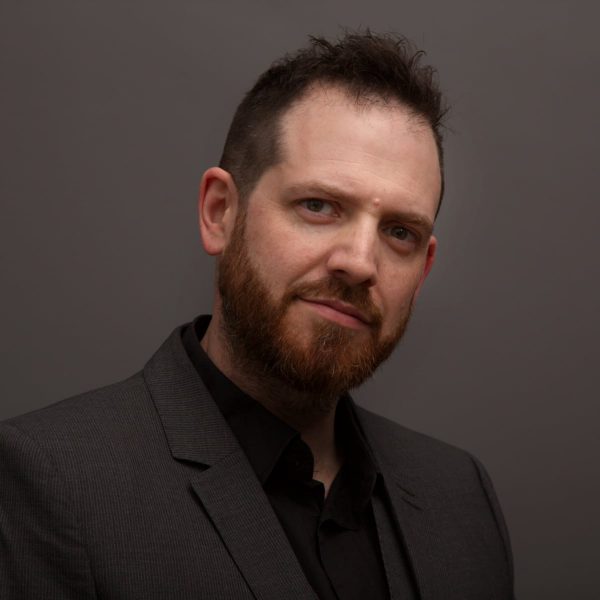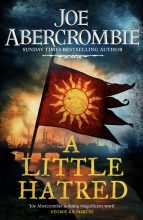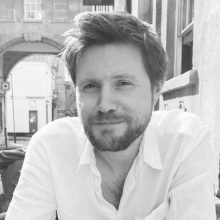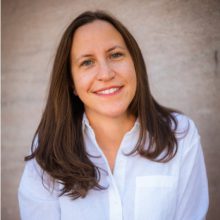What led you into writing?
I read a lot of fantasy (and all kinds of other things) as a kid, and played a lot of role-playing games, so I guess I had a lot of character and world ideas hanging around the back of my head. I then ended up working as a freelance tv editor in my 20s, and I’d have a fair bit of time off between jobs. So I started writing my take on the classic epic fantasy trilogy just for my own amusement, really. Almost straight away I started to be really excited by what was coming out.
How does a typical day look?
I don’t know that there’s any such thing – it depends a lot on where I am in the writing cycle. Planning doesn’t work much like drafting which doesn’t work much like revision which doesn’t work much like touring and promoting. But I try to make sure I spend a certain amount of time in the chair, and mix it up with the emailing and other tasks you have to do. I like variety.
In what ways do your characters test your abilities?
The great thing about characters is that you can make them do whatever you want them to. In that respect they’re much easier to deal with than real people. The problem, I suppose, is in getting them to do what you want to in a way that’s both believable and entertaining for the reader.
What’s your setup?
I have a sit stand desk, so I can sit at it for the occasional tasks and stand when I’m actually typing. Good for the back and I find it helps to be able to wander around the room and be a bit more energetic than just sitting there. I quite like to get a change of scene, though, and work on the train or a coffee shop or wherever. You don’t want to get into too much of a ritual. The more you can take the magic out of writing and just treat it as work the better, I find. That’s when the magic happens.
What lasting effects have your favourite authors had on your writing and style?
I think in a way that every author is a combination of all their influences – though those influences can certainly go beyond writing alone and into television, games, movies, and you know, life, anything that you enjoy or noticeably don’t enjoy leaves a mark of some kind. A couple of more obvious examples, maybe: Tolkien gave me a love of fantasy and detailed worldbuilding, expanded by LeGuin and Michael Moorcock. Then George RR Martin showed me that you could do something dark, shocking and character focussed while still very much writing epic fantasy. James Ellroy gave me an appreciation for vivid voice and powerful point of view writing. Elmore Leonard showed me how you can build character just through dialogue and a couple of keen, spare observations. Some of the directors and producers I worked with as a documentary editor taught me the value of pruning out every wasted word. But the best advice I ever had on writing was from my Mum, who told me you have to always be honest.
What do you do for inspiration?
I find the nature of inspiration is you can’t just make it happen. You read, watch, play, interact and it comes when it comes. The main thing you have to do, though, is work. If you don’t work until inspiration arrives you might be waiting for ever. Generally I feel there’s a temptation to treat writing as some special magical thing, and the more you can de-mystify it and treat it as banal work that has to be got through, the easier it’ll be to make progress. If you can grind it out when you’re not feeling inspired, inspiration comes as a bonus. The muse, as they say, visits those who are already working….
What repeating themes do you find yourself pulling into your stories?
That good and evil are often a matter of where you stand. That violence is utterly destructive for both victim and perpetrator, but at the same time has a glamour that fascinates us. That wizardly mentors do not necessarily have the best interests of the world at heart….
How do you wind down?
Video games and tv, mostly.
What sort of challenges do you regularly overcome while world-building?
I think the main challenge of world-building is to create an interesting world without appearing to do much world-building. For me the world is absolutely secondary to characters and action, and its main importance is the way in which it informs the characters and provides a backdrop to the action. One can easily see why there’s a big emphasis on world sometimes in fantasy – it’s the thing that really separates it from other kinds of fiction. But for me I’m more interested in what fantasy has in common – just good storytelling.
What’s the most useful advice you could give to an aspiring author?
Pass on my mother’s wisdom, probably. Be honest. Ask yourself with every image you use, is this true, does this really describe the thing. Ask yourself with every line of dialogue, would someone really say this. If you avoid easy cliché and go for what’s true, your work will always be arresting.
Tell us about the book you’re promoting.
A Little Hatred is the first book in a new trilogy called The Age of Madness. It’s set in the same world as my First Law books, but moves things on a few decades, so that the world is entering the early stages of an industrial and economic revolution, which is creating all kinds of drama. Many of the central cast are the children of characters we met in earlier books, so some of them still loom large over the narrative, but the idea always was that a new reader can start here, should they desire…
👋 Hi! I run Author Interviews
As a new writer I found myself itching to contribute to a thriving, creative community, so I made Author Interviews and I've met loads of wonderful people in the process. You can buy my debut fantasy RINGLANDER: THE PATH AND THE WAY from Amazon.


 Audible
Audible


